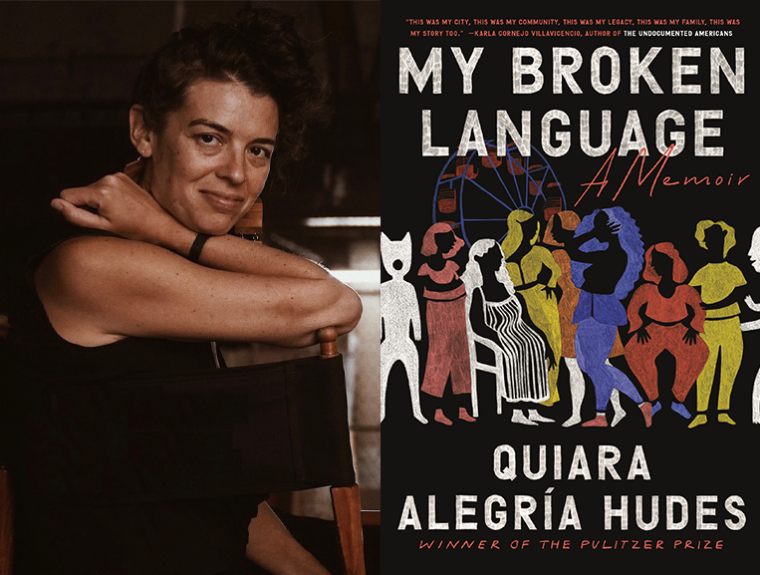This week’s installment of Ten Questions features Quiara Alegría Hudes, whose memoir, My Broken Language, is out today from One World. Born to a Jewish father and Puerto Rican mother, Quiara Alegría Hudes grew up between two languages and cultures. When her parents separated, she recalls: “It was baffling, watching parts of myself get further and further from each other.” But above all she loves her family deeply and is in awe of the women, especially her mother. Ever tender and watchful, she ultimately finds her voice as a playwright, rooting her work in the lives and language of her family. This is a virtuosic and intimate memoir about building a rooted creative life. “Wise, graceful, and devastatingly beautiful, Hudes’s memoir gives voice to the complicated cultural collisions and gentle rebellions that seed a life,” writes Lynn Nottage. Quiara Alegría Hudes is the Pulitzer Prize–winning playwright of Water by the Spoonful. She wrote the book for the Broadway musical In the Heights and wrote the screenplay for the forthcoming film adaptation. She lives in New York City.

Quiara Alegría Hudes, author of My Broken Language. (Credit: Jon Chu)
1. How long did it take you to write My Broken Language?
I wrote the first paragraph on my phone in October 2016. It was about a dance party at my Abuela’s house in Philly on her birthday, July 4, soon after Juan Luis Guerra’s Bachata Rosa album hit. Watching an old home video jogged my memory and reminded me how hard we used to dance.
2. What was the most challenging thing about writing the book?
Keeping it wild and mischievous and badass and ecstatic and irreverent while at the same time going deep and being real about the sorrow, loss, and struggles of the 1990s. As an adolescent, I numbed myself to much of the loss around me. But adult writers cannot afford the luxury of emotional numbness nor protective armor.
3. Where, when, and how often do you write?
In a studio uptown in Washington Heights, New York City. On a small, thick, silken slab of curly maple that my dad turned into a writing desk. I write every day for as many hours as possible. At around 3 or 4 PM, I usually need a glass of wine—a creative method endorsed by Questlove in his memoirs on creativity—so that’s when I head to the bar and keep writing there.
4. What are you reading right now?
Celia Cruz’s autobiography. Her life and talent are miraculous. And she’s got stories for days. I recently finished Mia McKenzie’s great new novel, Skye Falling, which comes out in August, and I encourage everyone to check it out.
5. Which author, in your opinion, deserves wider recognition?
Leslie Marmon Silko. Her book Ceremony was an essential read for me. It felt like a cleansing. The kind that starts with a burning.
6. What is the biggest impediment to your writing life?
COVID lockdown. I used to write in bars—can’t anymore. I used to write while walking—can’t do that either. Or in museums—nope. Being sedentary is the pits.
7. What trait do you most value in your editor (or agent)?
Wisdom, trust, and clarity. My editor, Chris Jackson, had no interest in telling me who I was or what kind of writer I should be. He was adept, though, at making me look further and further inward. It was a gentle, nurturing sort of ruthlessness. He is extraordinary.
8. If you could go back in time and talk to the earlier you, before you started My Broken Language, what would you say?
Hydrate more often. Have fresh ginger on hand at all times.
9. Who is your most trusted reader of your work and why?
My mother and my husband. They both know me well enough to point out when I’ve betrayed or misrepresented myself.
10. What’s the best piece of writing advice you’ve ever heard?
José Rivera, the great playwright and screenwriter, said: “Character is the embodiment of obsession. A character must be stupendously hungry. There is no rest for those characters until they’ve satisfied their needs.” His entire 36 Assumptions About Playwriting has been a rich source for me.








